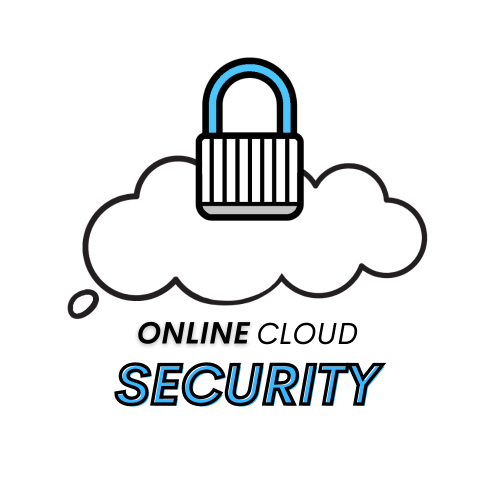
Dave Miller – Tech Enthusiast & Security Expert – July 8th, 2022

Knowing how to spot PayPal scams is essential if you are a frequent user. Scams may impact any PayPal user, whether a company or a person. With the increase in cybercrime, scammers devise new methods to access consumers’ financial accounts.
You should be aware of a few frequent practices used to defraud PayPal users of their money. Although there will always be risks online, your security depends on your own cyber hygiene. You may also safeguard yourself and your PayPal account with a few easy tweaks that won’t require you to take drastic measures.
To learn how, as a PayPal user, you can keep your funds secure and what PayPal advises you to do so, keep reading this article.
On the list of the most significant American companies by revenue, the 2022 Fortune 500, the online payments company PayPal is rated 143rd. With upwards of 429 million active users, over 20 million active merchant accounts, and 5.34 billion payments handled in the fourth quarter of 2021, PayPal dominates the digital payment scene. A typical PayPal user completes 40 transactions annually.
These figures indicate that PayPal is a popular online payment tool, but why?
You know that using PayPal to make an online payment is safer and faster. The idea that PayPal is safer than a credit card is one broad factor that caused PayPal to gain all the attention. If this were not, PayPal would have got relegated to the scrap heap of obsolete technological platforms. But that didn’t happen since many other comparable businesses have entered the market and are doing well. Despite this, PayPal dominates the industry with a 50.32 % market share.
Because PayPal places a high priority on security, the company has introduced further security measures beyond SSL and encryption. Even after that, other PayPal vulnerabilities have got found throughout time. They act quickly to resolve the situation on their end. They even offer large sums of money to ethical hackers who uncover flaws in their products. However, the most crucial factor in making things safe is the users.
Note: PayPal’s shares dropped 25% after its chief financial officer John Rainey claimed that the business discovered 4.5 million accounts it suspects had defrauded established.
Since users of PayPal frequently defrauded their funds through spamming, spoofing, phishing, and other forms of fraud on the platform, these schemes entail user error, particularly when users unintentionally reveal their login and password to hackers.
That is when a gap in PayPal’s security is created for attackers to exploit. Because you don’t know how to spot PayPal scams, scammers can access your money.

Understanding scammers’ tactics are essential to avoiding them. Using the information below, you will know how to spot PayPal scams, and you can prevent falling for scams that are now on the rise.
Since PayPal typically uses email to communicate with its clients. Hackers take advantage of the circumstance and send you a bogus email, pressuring you to act and risk losing your credentials or all of your funds. You must be cautious since knowledgeable scammers might fabricate PayPal’s complete identity to appear authentic. Scammers may tell you an issue with your account, and all scams mostly happen through emails.
Note: Email gets used in 96% of phishing attacks. Another 3% are committed through fake websites, while only 1% through phones.
The fake emails typically focus on either of these notifications.
Numerous scammers send fake emails informing victims that their accounts will get suspended. The email will then contain a link to get into your account. Still, it won’t be an official PayPal email, and you risk losing your login information if you click on it.
Some scammers may trick you into thinking you have already paid for what you’re selling. If you ship goods without double-checking the notification, it will result in a loss. So, before sending anything, always verify your PayPal account to determine whether you get paid.
A fake email informs you that buyers have sent more than the agreed purchase price to make you believe you have paid more. They may ask you to send the payment back to their bank account. Don’t be fooled by it! Check the amount you have produced by logging into your PayPal account.
If you refund the excess money outside PayPal. They will file a false PayPal complaint claiming their account got hacked and they did not intend to pay you. As a result, PayPal reimburses them under the buyer protection policy, leaving you on the hook for the initial payment you made to them. Also, the overpayment you made to their bank account.
The fraudster requests that the seller send their merchandise to an invalid delivery address and then contacts the shipping company with the new address for the parcel’s delivery.
They claim they never received the parcel after receiving it. PayPal will reimburse them for their purchase under buyer protection. Because PayPal Seller Protection only applies to shipments sent to addresses that get recorded on PayPal systems, you will not be protected. Be sure to double verify the mailing address before sending your package.
Scammers that use advanced fees solicit you for a bit of money in exchange for a greater return. Remember that nothing is ever truly free; there is always a catch. You lose the modest amount of money you transferred after sending the fraudster, who you never hear from again.
Due to the challenges in obtaining money back, PayPal users are frequently the target of this fraud.
Fact: For 61,226 phishing URLs discovered by Vade Secure, PayPal’s phishing increased exponentially by 167.8% in 2019.
The actions you must take right away to avoid PayPal commons scams.
First, remember that PayPal will never ask you for your credentials through email. PayPal doesn’t act as an escrow service, doesn’t keep client funds, and stays out of the shipping and tracking processes.
Second, according to PayPal, you will be notified via the website or the app’s messaging center if there is an issue with your account. You can double verify it from there instead of just the email you received.
Finally, forward any suspicious emails to spoof@paypal.com to report them. You may feel more secure as a result.
In addition to security measures, PayPal has a Buyer and Seller Protection Program that helps shield consumers from fraud. Additionally, PayPal provides both consumers and businesses with dispute and arbitration services.
So, you still have a chance of recovering your money in some circumstances is to reporting fraud to PayPal by visiting their Resolution Center
Since the company’s inception, PayPal has provided customers with various online payment options.
You may use PayPal to pay for your favorite items from millions of online retailers in the United States and across 203 global markets by linking your bank account, credit card, or direct debit card to your PayPal account, all without having to deal with complicated currency conversions. You may create a free account and transfer money to relatives and friends using it. If you use PayPal to transmit money as part of the business transaction, there will be a modest processing fee.
You don’t have to worry about disclosing all of your financial information when you purchase using PayPal. They handle every transaction using powerful encryption to protect your information. The service uses security socket layer protocol technology and 128-bit encryption to encrypt all transactions automatically. Additionally, PayPal does server checks to ensure users use a recognized browser.
However, PayPal has safeguards to keep prying eyes away from your money. However, the security safeguards work best when you, the PayPal user, take specific simple safety measures and help you. Those security measures will only apply if you know how to spot PayPal scams.
The value of PayPal Holdings as of July 1st, 2022, is $82.68B and is, without a doubt, a safe method for online purchases. You get an additional layer of fraud prevention protection when you pay using PayPal. But if you adhere to the cyber safety advice I’ve provided today and use PayPal, it is as safe as you can make it.
Overall, never give out your personal information so over the phone or by email, in general. Always verify the URL in emails from PayPal containing links; if in doubt, contact PayPal immediately.
Learning how to spot PayPal scams starts with the personalization of the fake email or message you may have received.
PayPal will never send a generic welcome; instead, it will always get tailored to the user at their registered email address. PayPal urges customers to forward any unknown sender email to spoof@paypal.com to safeguard themselves and others.
**Onlinecloudsecurity.com is a participant in the Amazon Services LLC Associates Program, an affiliate advertising program designed to provide a way for websites to earn advertising revenues by advertising and linking to Amazon.com and affiliated sites. As an Amazon Associate we earn affiliate commissions from qualifying purchases.**

Dave Miller is an IT Consultant for Online Cloud Security and has over 7 years of experience in the Information Technology space. He also specializes in repairing laptops & computers. In his spare time, he loves to talk about new technologies and hosts monthly IT and Cyber Security meetings in the Houston area.
Click any button down below to share this article on the following channels:

Online Cloud Security is here to recommend you the most secure devices, from laptops to smartphones, we only want to provide you with products that we have tested and used ourselves for online security. Every product that we recommend is heavily inspected and tested for security against hackers, viruses, malware, and any other intruders that may want to steal your information.

Online Cloud Security is here to recommend you the most secure devices, from laptops to smartphones, we only want to provide you with products that we have tested and used ourselves for online security. Every product that we recommend is heavily inspected and tested for security against hackers, viruses, malware, and any other intruders that may want to steal your information.
Your Trusted Source for Online Security